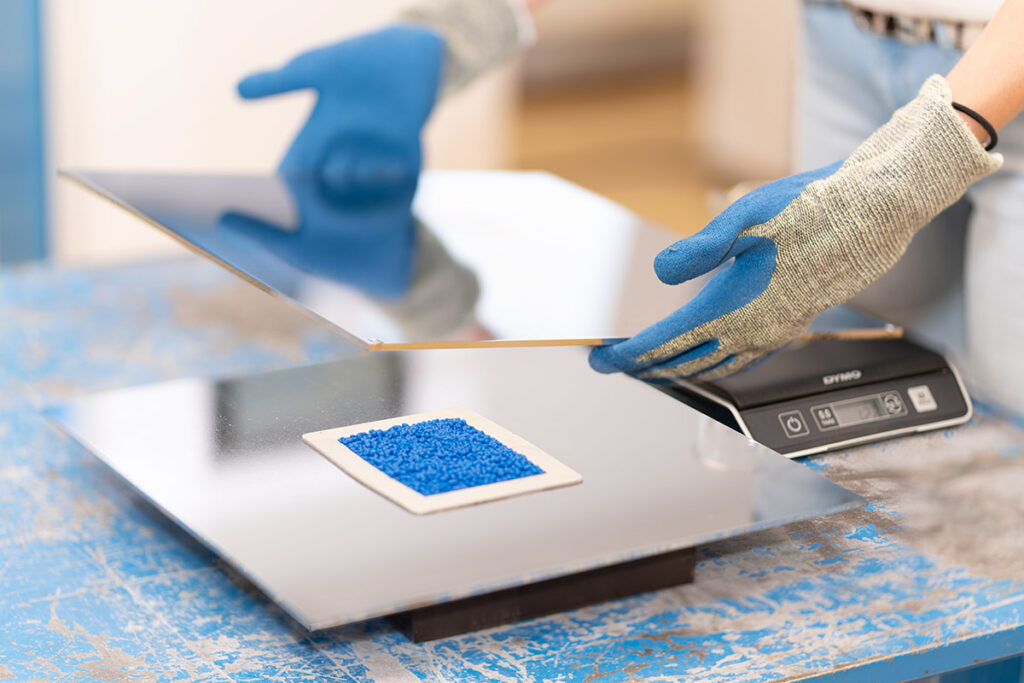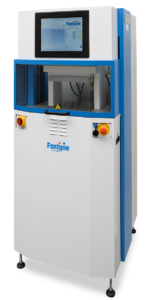September, 09, 2021
Hydraulic lab presses are commonly used for the preparation of samples for different kinds of lab tests. Hydraulic laboratory presses are used for pressing operations for different applications, such as rubber, polymers, composites, wood, plywood, textiles, ceramics, laminating (credit cards, ID cards), silicones.
In this blog, we will explain the simple working of a hydraulic system of a lab press and elaborate more on their benefits for industrial and lab environments.

Benefits of a hydraulic automated lab press
A hydraulic unit is based on Pascal’s law: a change in pressure at any point in an enclosed fluid at rest is transmitted undiminished to all points in the fluid. But there are several ways to build a hydraulic system. Here are some benefits of the presses from Fontijne Presses:
Fontijne Presses’ floor standing LabEcon series – available with a press range of 300, 600 or 1000kN – is an automated hydraulic laboratory press. The series is known for its accurate and consistent pressing quality and is therefore widely chosen as a sample preparation press for quality control and R&D.
Depending on the model – 300, 600, 1000 – the press range goes up to 300, 600, or 1000 kN at 300°C. Regardless of the model or settings used, the results will always be accurate and consistent.

Here are some benefits of the presses from Fontijne Presses:
1. Less noise and less energy consumption
The Fontijne Presses hydraulic system does not need an accumulator, because our system is very tight and there is hardly any leakage (please note that there is always leakage in a hydraulic system). That’s why we can work with an electric motor of < 1 kW, which can work in an on/off mode to regulate the piston and compensate for a loss of closing force.
Hence it is a very silent system: you will only hear a noise in the short period of time that the motor is in on mode.
Larger motors must be operated in combination with an accumulator, which is not desirable because it is a pressure vessel. Moreover, the accumulator has to be completely loaded before the motor switches off and the accumulator can adjust by means of the integrated bladder in case of a pressure drop. This might have an impact on the noise level, which is not so bad in an industrial environment but can be very annoying in a lab
2. No extra cooling required
The Fontijne presses don’t need extra cooling for our hydraulic unit: the unit is not heating up, not even in 24/7 operation. Other hydraulic systems are constantly on, which means that the motor runs continuously. In such a system the oil is being pumped around by setting a valve in a position that allows this. The oil is pumped through this valve and returns to the reservoir. During this pumping process, the oil experiences friction, and this friction generates heat. Therefore, continuously running hydraulic systems must have cooling, in order to cool down the oil to its working temperature.
3. The maximum closing force that can be maintained
As we explained in a previous blog post, there is always a leakage in a hydraulic system. This means that after a certain period of time, the maximum or the set-closing force will not be maintained. Unless you have taken your precautions which we did of course: our control system detects the pressure drop and immediately reacts by switching on the electric motor of the hydraulic motor in order to go up to the max. or set level again.
Fontijne Presses automated hydraulic presses
Fontijne Presses exclusively manufactures laboratory presses. This means that all of our efforts and research are focused on laboratory presses.
Our presses are designed with the safety of the operator in mind and use safety facilities such as a safety shield, an emergency stop system, and a fixed upper plate.
Thanks to the use of high-quality and carefully tuned heating elements, our laboratory presses offer extremely accurate temperature distribution. The rigid design of our presses allows precise force distribution over the full platen surface as well as highly controlled pressure build-up.
If you want to talk to a specialist about your specific application and want to receive more information about our presses, just contact us or book a demo.
Feel free to contact one of our specialists if you would like additional information on laboratory platen presses.
